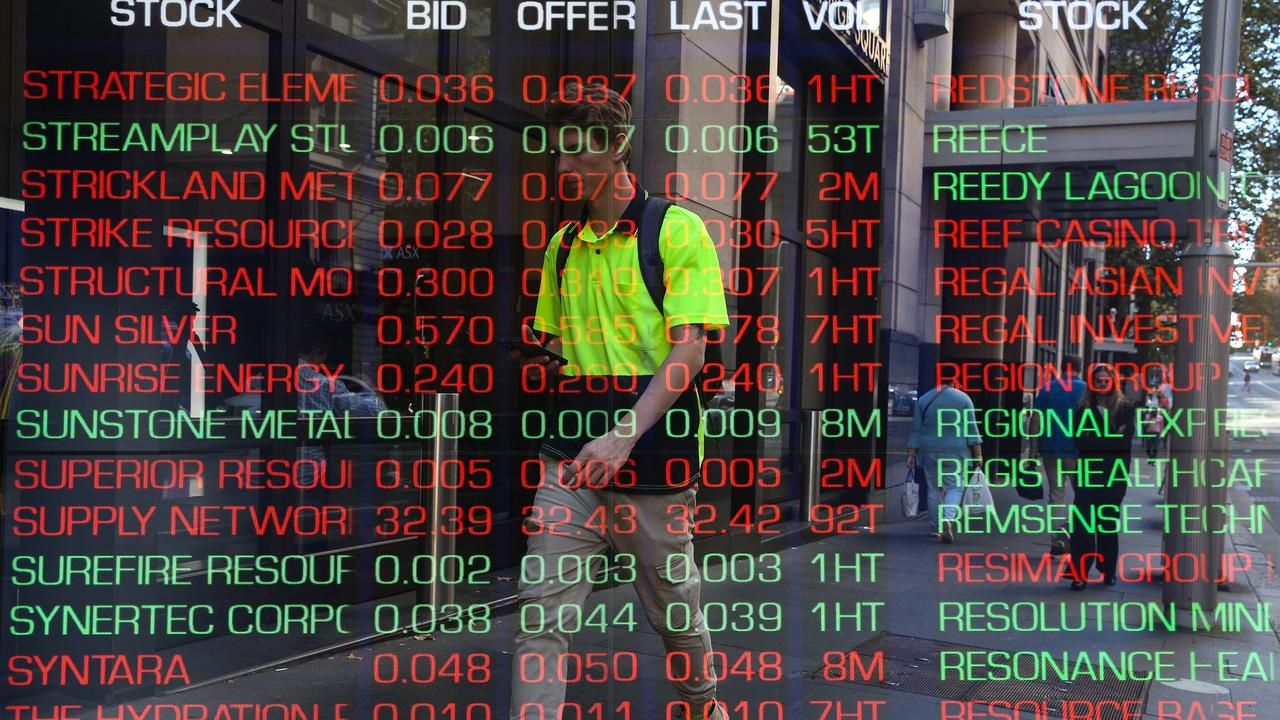Stalking the next big thing
DON'T just sit on your money waiting for the share market to bounce back, the `next big thing' could be just around the corner.

Stalking the next big thing
IT’S rough out there in the markets. The smartest investors bailed out of the stock market at the end of last year, saving themselves an awful lot of pain.
But the question for everyone who sells their shares is what to do with the money now?
Of course you could leave it in the bank, maybe in a high-interest cash account, which could get you up to 8 per cent with little risk.
But many investors want to risk a bit more and hopefully make a bit more. If you’re interested in moving away from the plain vanilla shares or fixed income products, you’re moving into the murky world of alternative investments.
This is usually putting your money into things as varied as highways and bridges, agriculture, commodities, private equity, and structured investment products that bundle together income streams and capital gains from a wide variety of sources.
Many super funds have been investing in alternatives for years and have made good returns.
For instance, Unisuper, the super fund for higher education and research workers, owns half a water filtration plant in Sydney, 5 per cent of Brisbane airport and timber plantations in Victoria and New Zealand.
Although most balanced funds continue to have a steady weighting to the traditional investment markets such as Australian shares (32 per cent), international shares (25 per cent), property (9 per cent) and cash (6 per cent), there has been a significant shift to alternative assets.
In most cases this has been at the expense of fixed interest, with the average weighting dropping from 26 per cent in 2002 to 19 per cent in 2006.Nearly all of this money has found its way into alternative investments such as private equity, hedge funds and infrastructure.
So next time you take a browse through the results of any of the superannuation ratings surveys you will also see that most of the funds at the top of the list have higher than typical exposure to alternative investments. But for the average punter, investing in alternatives can be a tricky business.
Products can be complicated, your money can be tied up for a long time, commissions and fees can be high and the value of investments can go down as well as up.
The advice of a financial planner is a must. But for those willing to do the work returns are available.
We have picked out three alternative investment areas Australian experts say have potential over the next few years, while the stock markets and the credit crunch hopefully sort themselves out.
Water
Water is perhaps the most important commodity of all.
With climate change, the Murray-Darling crisis and the El Nino-induced drought causing serious water shortages across Australia’s major cities, companies that specialise in water, water engineering and water infrastructure are set to profit.
Globally too, water is the world’s third largest industry after oil and electricity and water demand is doubling every 20 years – more than twice the rate of population growth.
About a third of the world’s population lives in countries that are considered water stressed.
Many analysts are saying that water shortages will be a leading cause of conflict in the 21st century.
But investing in water is not so easy, though.
Unlike other commodities it is not traded – you cannot buy an option on water. And if you do not want to do your own company research – finding out which companies work with water, which are well run and have good growth prospects and which do not – it is difficult to know where to put your money. There are, however, a couple of funds that specialise in water.
One investment company for example offers a fund that invests in water-related companies internationally. It is a fund of funds that invests your money, sometimes in hedge funds, which use sophisticated financial trading techniques to profit from companies in the water industry.
The minimum investment for this type of fund is usually about $10,000, and typically there will be several types of fees, such as application, management and performance fees.
Other funds in this sector invest directly in companies working in the water industry or with exposure to this alternative water industry around the world.
Credit
It’s fun to be with the crowd, says Robert Swift head of multi-strategies at BT Investment Management, but that’s not necessarily the way you make good returns.
You have to have a counter-cyclical investment mindset, he says.
With a credit crunch that’s unfolding around the world this might be the right time to start providing loans to corporates, Mr Swift suggests. So for retail investors, that could mean investing in a wholesale credit fund.
This type of fund buys lots of different bonds from companies. The returns the funds achieve are determined by the interest rate the companies pay on the bonds that they have issued and the value of the bonds themselves, which change depending on market interest rates and the maturity of the bonds themselves.
There are two types of corporate credit: fixed and floating interest rate bonds.
Fixed interest products change in value as market rates change, while income returns on floating rate bonds change with interest rates. These types of funds are not for novice or unsophisticated investors, so the guidance of an industry expert or financial planner is essential. They also have a high buy-in price, for instance one credit fund requires a $50,000 minimum bet.
Commodities
While commodities are nothing new to many individual Australian investors, the rest of the retail investment world is only just starting to catch on to this investment sector.
The expansion of third-world countries is also rapidly fuelling this new surge in commodity demand.
If there is one certainty over the next decade or so, it is that China’s 1.3 billion people and India’s 1.2 billion are going to want to keep getting more stuff: more cars, more mobile phones, more clothes, more refrigerators.
Both economies have been growing at close to 10 per cent over the past five years or so and, even if growth rates fall a couple of percentage points, that’s still a lot of new stuff every year.
That is the fundamental driving force behind the current commodities super cycle, says Peter McGuire, managing director of Commodity Warrants Australia.
“We’re about seven years into the current cycle and they usually last about 14 to 22 years,” he says.
“We’ve got the full engagement of Asia and India, building cars, trucks and push bikes, their dietary habits are changing, driving demand for beef, wheat, soy beans, orange juice and coffee – we all know that the east wants what the west has,” Mr McGuire says.
Commodities are those things used to make stuff or are consumed in such vast quantities that they are traded globally with one price.
Investing in commodities is easy, but risky.
Derivatives
As a retail investor you can buy derivatives which give you the right or the obligation to buy or sell particular commodities at some point in the future.For instance, some companies specialise in warrants on many different types of commodities, including oil, gold, wheat, live cattle, sugar and cotton.
A warrant gives you the right to buy or sell a certain amount of the underlying commodity at a certain price.
To start it could be as simple as interviewing a company specialising in these types of investments and opening an account. Often the sales team is licensed to give you investment advice. Then you need to make trading decisions based on the information and your research.
If trading directly in commodity derivatives seems way too risky and complicated, you could invest in a fund which does the trading for you.
For instance, there are funds that will simply take your money and then hand it over to the professional commodities traders to manage.
The traders do the work: trading in commodities warrants and other instruments on your behalf. You can sell out of the fund at any time you like but it can cost you commissions and fees.
Snap shot
Generally, alternative investments can be complicated and in the main are obscure.
But they can also offer returns investors could not access through more traditional markets such as stocks and fixed income products or accounts.
What is most important is that you understand the reasons why you are investing in a particular product or venture – what is the investment story behind it. Then make sure you understand how the product works.
Your financial adviser is the most important ally in your investment campaign.



